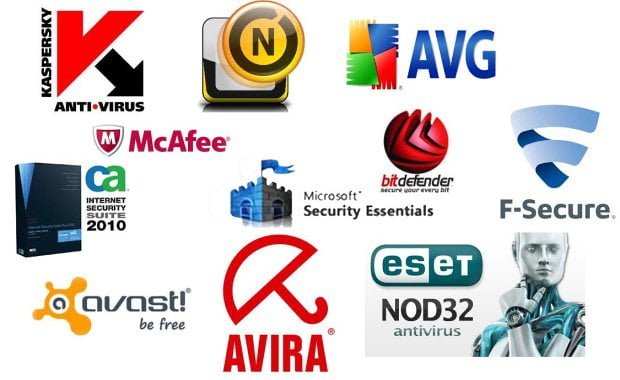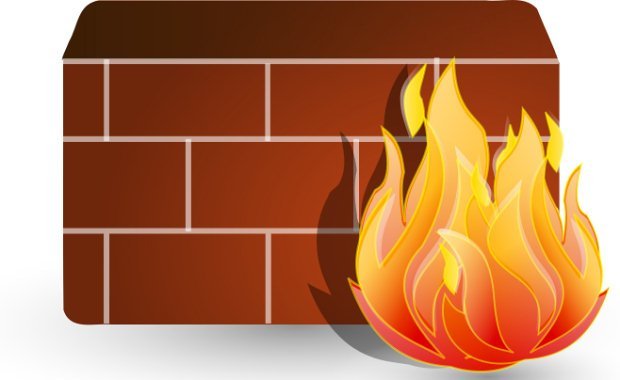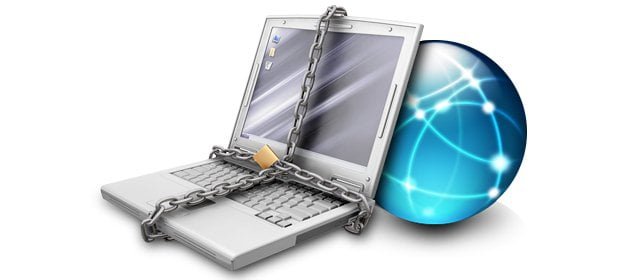Computer Security Basics. Part 2

Rule 4: AntiVirus Software – Beware the Wolf in AntiVirus Clothing

Yes, of course, updates are nice, but we also need to kill the viruses, to stab’em in the heart and kill’em dead; that is really cool, and that is where antivirus software comes in.
Antivirus software is computer software that resides on your computer that constantly scans and looks for the nasty viruses that are trying to get into your system. When you are deciding to choose antivirus solution there are couple of things that you need to think about:
First, there are both commercial and residential versions of antivirus software; whether you buy McAfee, Norton, Kaspersky or any other, they have both commercial and residential versions. Commercial versions allow for central control, central reporting, so if some segment of a company gets infected with a certain virus, the administrator can know about that. Residential AV software does not have anything like that.
When AV is commercial, as you buy it there is much more under policy once you have paid for that. You buy it for a certain subscription period, but at the end of that subscription period it does not necessarily stop working.
You have to remember – in case of residential software, it does; so if you go out of the office and buy a version of McAfee for your home computer, remember you are buying that McAfee for one year, you are not buying it forever, so you don’t install it once, and do not install it ever-ever again, because in one year it stops protecting your computer.
A lot of people like free versions of antivirus software out there – this is not to condone it, it is true that you get what you pay for, so paid AV software is better than free AV software. One thing you need to keep in mind is that if you decide to go with free AV software, make sure you get real AV software. There are many users who want to go for free stuff, and they end up downloading viruses. What the hackers have done is they created a virus and they put it into a nice package they called antivirus, and say “Hey, download free AV software,” so you download this free AV software – and it takes over your PC, it is really awfully bad.
So, it is good to remember that buying residential software buys it for a year only, you need to be updated every single year; and if you do decide to download free AV software, make sure:
1. It is a good quality one, for there are many things that are but a crap;
2. It is not a virus itself posing as AV software.
Rule 5: Malware and Spyware

As you have heard about viruses, you definitely have heard about malware or spyware. You may be wondering what is the difference between malware and spyware. Viruses are normally self-replicating and they try to do some type of damage to your computer; they either kill the OS, or they crop files, so they do something that intentionally causes harm to your system; spyware, on the other hand, does not try to cause any harm to your system, it goes in and it simply tries to collect data, as much info as possible, trying to collect user names, passwords, credit card numbers.
That is, viruses try to damage your computer; spyware and malware try to collect information from your computer. For some reasons, AV companies do not really include antispyware products within their AV software. It is hard to understand why, so if you buy AV software, it will get rid of your viruses, but will not necessarily get rid of your spyware. It sounds odd, but it is true. So, when you have your AV installed, you may also want antimalware; there are a number of good products, for instance, experts recommend Microsoft Defender, as well as Spybot Search & Destroy, and Ad-Aware. Both Microsoft Defender and Spybot are free, and Ad-Aware is available in free and pay-for versions.
This might sound a little ironic and weird, but as experts suggest buying AV software to everybody, because the commercial, the pay-for versions are better than free versions, in antispyware this is completely different as free versions are generally better than pay-for versions. Do not waste USD 30 for getting a piece of antispyware software, because it is probably not going to do as well as a free version. So if you are looking for antimalware software – like it is said, get a free version, Microsoft Defender, Spybot Search & Destroy) or Ad-Aware.
Rule 6: Firewalls – Keeping Hackers Out… and You In…

The next thing we need to talk about are firewalls, software and hardware products that keep hackers from being able to enter your computer from the Internet. So, basically, if you have your computer, and you are going out on the Internet to surf the web, to get on Skype to get little instant messages for your conversation, that all works fine, but then you have a firewall so that bad guys out of the Internet trying to get to your computer get blocked at your firewall.
There are two ways that you have this firewall either on your computer or on your network:
1. You can either have software firewall, this would normally come with antivirus products nowadays, so you install it on your computer and it prevents hackers from getting into your computer.
2. Otherwise, you can have firewall built into your browser, so whether you have a DSL modem, cable modem, or router, the place where your entire computer connects to the network – that can also have firewall built-in. However, just because it is built-in does not mean it is necessarily turned on. So you do need to go to the firewall and make sure it is turned on.
The firewall does the following: things like different programs, firewalls, web-browsers, Skype or instant messaging use something called ports to communicate with. So web-browsing uses port ID, mail clients use port SMTP 25 and so on; the firewall blocks those ports, so if you do not want people coming into different ports, you block those ports and nobody can get into it.
So if you use a piece of software at your network and that suddenly stops working after you have installed a firewall, it is probably because your firewall is blocking the port that this piece of software needs. If you need a fix for this, just Google the piece of software and the port number it needs and go in for the configuration of firewall and open up the port. Thus firewalls keep hackers from getting into your computer, but you need to be a little bit concerned because they can keep you from doing what you need to do also.
So just keep that in mind, and if one of the pieces of software does not work, go to your firewall and open up the appropriate port for it.
Rule 7: Internet Security Suites
Why let hackers mess up your computer for free when you can pay good money to do it yourself?

To make your computer more secure and so you are protected, the major manufacturers of AV software have created what they call Internet security suite, a package of products, not just an AV software, but comprising antimalware software, firewall software, something called site-advisor – all of that stuff into one package.
It sounds like a good idea until you need to deal with it professionally. What experts have found is that most of these companies can do one thing very well, so they do firewall, they may build up AV software very well, but they will not do too well on other things, so it is not recommended that people generally buy Internet security suites, because you think you are protected from viruses and spyware, and you cannot find out that the company may be the best in AV software, but also one of the worst in the antispyware software. That sucks.
The other problem about Internet security suites is that they try to do too much and end up hurrying the user, because as one little cartoon character has said, “We have met the enemy, and it is us”. That is the problem, many of these security suites shut down your computer so much to hackers that you end up not being able to use your own PC, especially if you do not understand how Internet security suite works.
For example, in the wild a user complains that he has spent a lot of money on hourly rate to restore access to the Internet as he was served at hourly rate by Internet security suite provider which was installed on his PC. So basically this software for no good reason blocked port 80, while on calling its developers office the user was informed it was not a problem in security suite but in his computer, so that he ordered a paid phone consultation and spent quite a lot of money to realize that Internet was blocked by the suite.
In other cases, security suites will not allow users to install software they need to install, will not let them access things that they need to access; so security suites make your computer systems very secure, but in many cases they make them too secure, and you need to keep that in mind. As mentioned above, you need to buy antivirus software from one manufacturer, antispyware software from another manufacturer, and firewall software from yet another manufacturer. Let each vendor do what it does well. Do not try to mix everything up into one single pack.
Also Read:
Posted in: KnowledgeBase
Leave a Comment (0) ↓